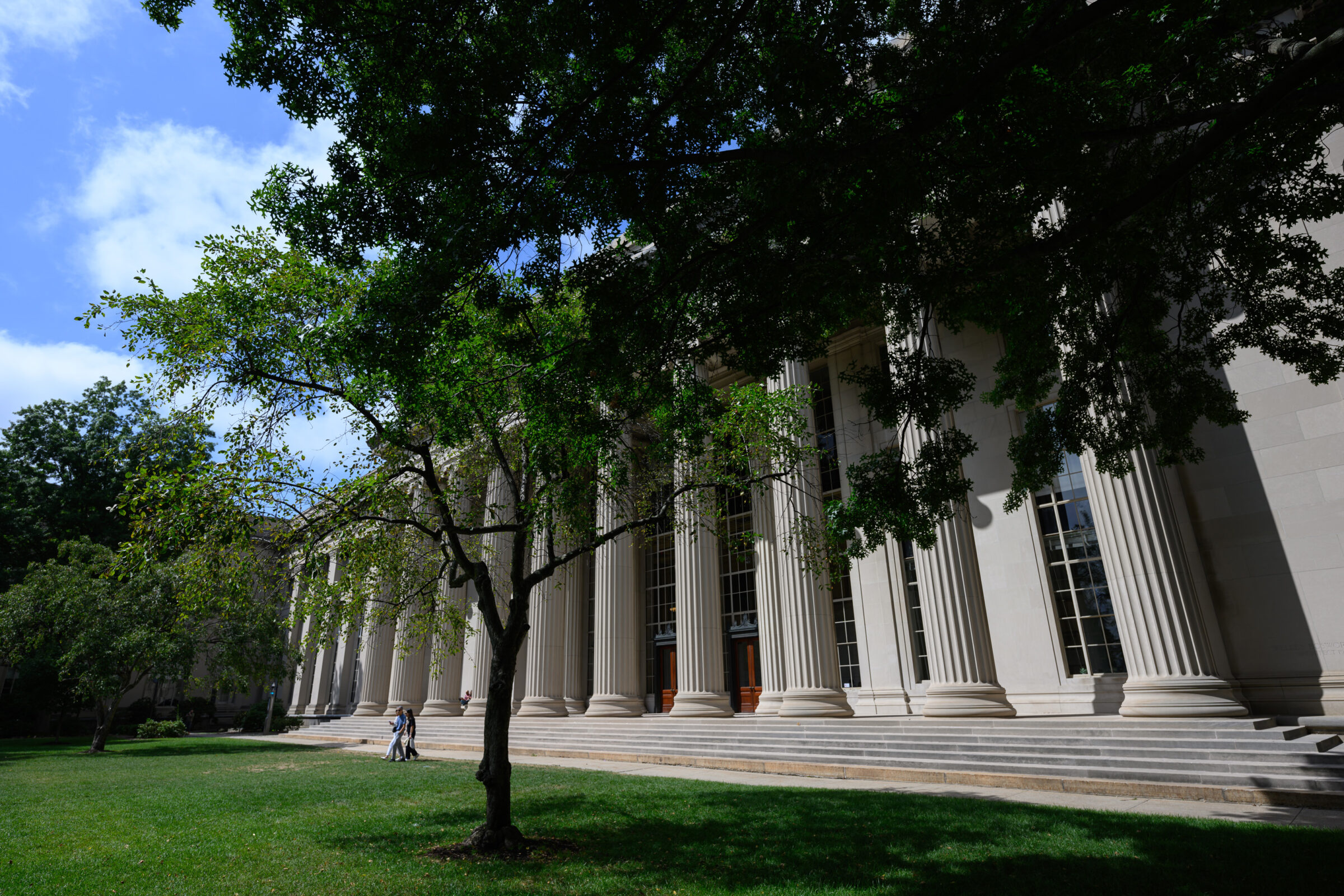
Oxford University is No. 1 in the world for the ninth consecutive year.
Photo by Chinyup Wong: Getty Images
Earlier this month at Times Higher Education’s World Academic Summit in Manchester, UK, the Times Higher Education World University Rankings 2025 were unveiled. A total of 2,092 universities in 112 countries and territories are ranked (186 more than last year), with the top 200 listed singly and the rest corralled into groups of 50 whose overall scores fall into certain points ranges.
Among the findings announced by Times Higher Education in a release:
- Oxford is No. 1 for the ninth consecutive year, “bolstered by significant improvements in industry engagement and teaching.”
- “MIT rises to second place, overtaking Stanford, which drops to sixth.”
- “China edges closer to the top 10, further boosting its global research influence.”
- “Australia’s top five universities all slip down the rankings, due to declining reputation and international outlook.”
- “Three new countries join the top 200 — Brazil, Saudi Arabia and the United Arab Emirates — highlighting the rise of emerging markets in higher education.”
The respected rankings involved the collection of 472,694 data points from 2,860 institutions that submitted data. The scorecard measures 18 performance indicators grouped into five areas: teaching (the learning environment); research environment (volume, income and reputation); research quality (citation impact, research strength, research excellence and research influence); international outlook (staff, students and research); and industry (income and patents).
“Oxford’s reign is now the longest in the history of the league table, beating Harvard’s eight-year stint which ended in 2011,” the publication stated. “The institution’s performance has been bolstered by significant improvements in its income from industry and the number of patents that cite its research, as well as its teaching scores. Compared with other institutions in the top five, Oxford’s international outlook — particularly its proportion of international students and international co-authorship — makes it stand out.”
The publication’s analysis notes a general decline in the scores of UK and U.S. institutions when it comes to research reputation and teaching reputation, while esteem rose for institutions in China, France and Germany.
The Industry Lens
As Site Selection readers are by and large corporate end users looking to partner with higher education, I took a closer look at the industry portion of the rankings. Although it only accounts for 4% of the overall score, Times Higher Education nevertheless looks to this area as one of rising importance.
When sorted by industry score, a total of 33 universities scored perfect 100s. Here they are, along with their overall ranks and scores in other categories:
| Rank |
Name |
Overall |
Teaching |
Research Env. |
Research Quality |
International |
| |
|
|
|
|
|
|
| 2 |
Massachusetts Institute of Technology |
98.1 |
99.2 |
96 |
99.7 |
93.8 |
| 6 |
Stanford University |
97.2 |
97.5 |
97.3 |
99.6 |
85.1 |
| 7 |
California Institute of Technology |
96.3 |
95.2 |
97.5 |
97.3 |
89.7 |
| 12 |
Tsinghua University |
92.5 |
95.4 |
98.4 |
93.5 |
49.8 |
| 16 |
Johns Hopkins University |
90.7 |
83.7 |
91.3 |
97.3 |
83.6 |
| 17 |
National University of Singapore |
89.9 |
78.4 |
93.6 |
95.7 |
91.9 |
| 26 |
Technical University of Munich |
83.5 |
70.4 |
86 |
91.7 |
83.1 |
| 27 |
Duke University |
83.4 |
77.7 |
75.6 |
96.2 |
75.5 |
| 28 |
The University of Tokyo |
83.3 |
94.1 |
94.2 |
68.3 |
50.4 |
| 32 |
École Polytechnique Fédérale de Lausanne |
80.4 |
73.6 |
72.4 |
88.5 |
95.3 |
| 34 |
University of California, San Diego |
79.9 |
64.9 |
75.8 |
97.4 |
73.9 |
| 38 |
LMU Munich |
78.7 |
65.2 |
76.5 |
91.7 |
76.4 |
| 43 |
KU Leuven |
77 |
59.5 |
74.9 |
92.4 |
80.6 |
| 47 |
Zhejiang University |
76.2 |
70.6 |
76.6 |
81.8 |
61.3 |
| 52 |
Shanghai Jiao Tong University |
75.8 |
72.4 |
79.3 |
77.5 |
56.4 |
| 55 |
Kyoto University |
75.2 |
86.3 |
85.1 |
58.7 |
45.8 |
| 56 |
Delft University of Technology |
74.8 |
63.2 |
76.1 |
76.8 |
93.6 |
| 62 |
Seoul National University |
73.5 |
73.7 |
74.3 |
76.2 |
44.9 |
| 66 |
The Hong Kong University of Science and Technology |
72.9 |
54.1 |
60.9 |
93 |
98.1 |
| 80 |
City University of Hong Kong |
69.8 |
53.1 |
51.8 |
92.4 |
99.1 |
| 82 |
Korea Advanced Institute of Science and Technology (KAIST) |
69.5 |
65.2 |
66.7 |
78.3 |
45.7 |
| 92 |
RWTH Aachen University |
67.2 |
53.9 |
64.2 |
78 |
70.3 |
| 93 |
Charité – Universitätsmedizin Berlin |
67.1 |
47.3 |
49 |
97.8 |
74.6 |
| 116 |
McMaster University |
65.2 |
41.2 |
50.2 |
93 |
87.6 |
| 116 |
University of Alberta |
65.2 |
48.2 |
56.7 |
79.3 |
90.4 |
| 120 |
Tohoku University |
65 |
69 |
69.6 |
53.1 |
59.9 |
| 128 |
University of Freiburg |
63.8 |
45.4 |
51.3 |
86.9 |
73.1 |
| 151 |
Pohang University of Science and Technology (POSTECH) |
61.9 |
55.9 |
50 |
78.8 |
43 |
| 162 |
Osaka University |
61 |
63.5 |
65.4 |
51.8 |
50.7 |
| 166 |
Karlsruhe Institute of Technology |
60.8 |
45.8 |
56.9 |
71.1 |
73.1 |
| 172 |
National Taiwan University (NTU) |
60.4 |
53.3 |
54.6 |
69 |
55 |
| 185 |
Eindhoven University of Technology |
59.5 |
46.2 |
51 |
68 |
88.4 |
| 195 |
Tokyo Institute of Technology |
59.1 |
61.1 |
63.9 |
47.5 |
57.6 |
While only six of the 33 institutions are in the United States, all six fall within the top 35 in the overall rankings, led by MIT, Stanford and California Institute of Technology in the top 10. Germany also claims six institutions among the 33 listed, topped by overall No. 26-ranked Technical University of Munich. Three of these top industry-friendly institutions are in mainland China, while two are in Hong Kong.

Overall No. 2 Massachusetts Institute of Technology was among the 33 institutions receiving a score of 100 in the industry category of the World University Rankings.
Photo by Gretchen Ertl courtesy of MIT
A total of eight universities scored a 99.9 in the industry category. Half of them are in Asia:
| Rank |
Name |
Overall |
Teaching |
Research Env. |
Research Quality |
International |
| |
|
|
|
|
|
|
| 13 |
Peking University |
92 |
94.9 |
97.7 |
88.2 |
70.1 |
| 30 |
Nanyang Technological University, Singapore |
81.8 |
65.8 |
79.3 |
94.5 |
94.1 |
| 80 |
University of Groningen |
69.8 |
46.4 |
57.5 |
94.8 |
93.5 |
| 87 |
University of Minnesota |
67.8 |
58.4 |
59.6 |
86 |
46.2 |
| 102 |
Yonsei University (Seoul campus) |
66.1 |
57.5 |
56.2 |
84.4 |
47.2 |
| 112 |
Ghent University |
65.4 |
47.7 |
59.5 |
84.2 |
64.7 |
| 152 |
Harbin Institute of Technology |
61.8 |
57.3 |
55.2 |
74.7 |
33.7 |
| 163 |
University of Würzburg |
60.9 |
39.8 |
44.1 |
92.7 |
61 |
The report introduced the patents metric in 2023 and this year has expanded the sources for those data “beyond the World Intellectual Property Organization, the European Patent Office, and the patent offices of the US, the UK and Japan, to include more than 100 patent offices around the world.” This report counts patents published between 2019 and 2023.
“A university’s ability to help industry with innovations, inventions and consultancy has become a core mission of the contemporary global academy,” the publication says. “The industry income metric seeks to capture such knowledge-transfer activity by looking at how much research income an institution earns from industry (adjusted for PPP), scaled against the number of academic staff it employs. The metric suggests the extent to which businesses are willing to pay for research and a university’s ability to attract funding in the commercial marketplace — useful indicators of institutional quality.” — Adam Bruns
|